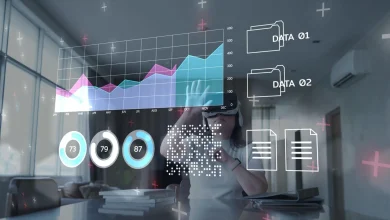Artificial intelligence (AI) has experienced rapid growth in the past few years. Modern businesses have implemented AI-powered solutions due to their wide range of benefits, including improved operational efficiency, reduced human error and better insights from big data analytics.
One industry that can leverage the power of AI is healthcare. The sector is ripe for innovation, and widespread adoption can bolster the system in ways unimaginable. One specific area within this field is conversational AI, which is expected to significantly impact the healthcare industry.
Here are some of its use cases in healthcare and how it will likely revolutionize modern systems.
What Is Conversational AI?
Technologies under the category of conversational AI combine natural language processing (NLP), a branch of computer science, with traditional software like voice recognition systems, chatbots and voice assistants. Conversational AI technologies also rely on vast amounts of data and machine learning (ML) to imitate human interactions.
As its name suggests, conversational AI can naturally process, understand and respond to human text or voice inputs. As more information is entered, these systems improve and better recognize patterns and make predictions. Essentially, they progressively teach themselves using reinforcement learning.
Conversational AI works by engaging in four steps:
- Input generation: Users input information through voice or text.
- Input analysis: Text inputs are analyzed using NLP and speech-based inputs are analyzed by automatic speech recognition (ASR).
- Dialogue management: Natural language generation (NLG) is applied so the machine can respond to the user’s inputs.
- Reinforcement learning: User inputs are analyzed to reinforce the machine’s learning and improve response accuracy.
There’s one key difference between traditional chatbots and true AI chatbots. Traditional chatbots rely on humans working behind the scenes to produce dialogue and scripts for the machine, whereas AI chatbots can engage in conversation autonomously and teach themselves over time.
How Is Conversational AI Used in Healthcare?
Healthcare services experienced rapid digitization due to the COVID-19 pandemic. For example, it’s becoming increasingly common for patients to connect with their providers via telehealth technologies.
For example, people in need of services can use their computer, tablet or smartphone to participate in a virtual exam. There was high demand for telehealth services, especially during COVID-19 lockdowns, while many people remained inside their homes to reduce their chances of exposure.
It’s also anticipated that more businesses will adopt chatbots, one of the most common applications of conversational AI. Research suggests that companies using these bots can save as much as 30% on customer service expenses.
Here are some other conversational AI use cases in the healthcare industry:
Resolving Frequently Asked Questions (FAQs)
Many websites will leverage chatbots to help visitors resolve frequently asked questions (FAQs), and companies in the healthcare industry are no exception. Clinics and hospitals have implemented AI chatbots to answer patient FAQs regarding prescriptions, appointments, or any queries related to their health and wellness.
This technology is becoming increasingly important due to major labor shortages in the industry. Conversational AI may not entirely replace nurses or doctors, but it can step in to answer basic questions so they can focus on more significant patient needs.
Scheduling Doctor Appointments
Patients no longer have to call their doctor’s office and wait on hold for several minutes to book an appointment. Conversational AI can help schedule appointments quickly and easily.
The chatbot can set appointments for patients as long as it has access to a doctor’s availability. Some versions integrated with customer relationship management (CRM) software such as Salesforce or Oracle can track visits, schedule follow-up appointments and store the data for future reference.
Recovering Patient Data
Storing patient data for future reference can alleviate some of the work doctors or nurses need to complete daily. Healthcare workers can access critical information that the chatbot stores, whether for a discharged or new patient.
Medical records are easily accessible and can streamline a healthcare company’s operations. Teams can use this information to offer personalized services to their patients, which improves the patient experience by meeting their unique needs.
Hiring and Training New Employees
It’s common for large healthcare organizations to recruit and hire new staff members. A candidate’s background must be vetted, and a lot of paperwork must be completed to onboard employees successfully. Chatbots can alleviate some of the extra work placed on a facility’s HR department and personnel.
Additionally, an organization can leverage chatbots to send important paperwork new employees need to sign and automate other tasks, such as scheduling, vacation time, maternity leave and more.
Conversational AI chatbots are becoming increasingly common in the healthcare sector. This automated technology is expected to revolutionize the industry by improving accessibility, overcoming labor shortages and helping medical workers focus on patient outcomes.
Conversational AI: A Boon in Healthcare
Conversational AI is carving out its place across several industries. Businesses are starting to recognize how beneficial the technology is and why it’s worth investing in. Automating tedious processes with conversational AI can allow healthcare workers to focus on other meaningful tasks.
Despite the anticipated growth of conversational AI, there’s still room for improvement that the healthcare industry should consider to improve the quality of care.




